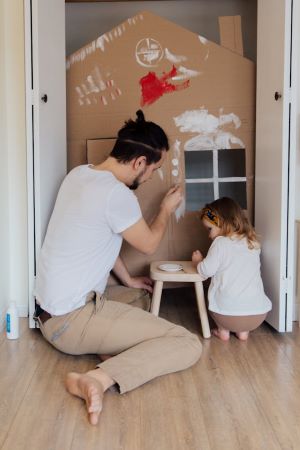Parenting is challenging, no doubt about it, yet some parents naturally excel.
Why is that?
Perhaps it’s the influence of strong family ties, community support, spiritual beliefs, education, or just plain innate love and intuition.

Conversely, parents who experienced little positive reinforcement or affection in their own upbringing can develop a heightened sense of survival over time. This can manifest in a desire to control or please others, or an even more unhealthy combination of the two!
The concept of narcissism, though seemingly recent, is far from a new phenomenon.
It was once simply referred to as selfishness.
Essentially, it is an extreme form of self-absorption where an individual prioritises their desires above all else, lacking empathy for those who do not serve their interests.
In my own personal experience, both of my parents were narcissists who operated on an unspoken accord, each pursuing their desires independently. My father was a gambler and mother an overpowering bully with an eating disorder.

As children we were expected to obey and accept our subordinate status and we really didn’t question it at all, we were too busy playing!
This environment was our ‘normal,’ and we were resilient, as children tend to be. We entertained ourselves, squabbled, cared for each other, and largely grew up autonomously. Yet, self-sufficiency did come with its challenges because children need guidance to navigate the complexities of growing up. Nevertheless, when we messed up, we owned it and took the consequences, perhaps once too often on reflection!
So, how does all this impact the maturing adult in the long term?
If our ‘normal’ is far from normal, it surely leads to issues, doesn’t it?
Indeed, it can, because some of our behaviours and automatic responses may need a little revision to stop making the same old mistakes and to create a more fulfilling life for ourselves as we mature.

Help is usually needed, and it can simply come through friends and partners who show us a different perspective on life, or through self-help literature and talking therapy.
Whatever aligns with the individual to cultivate a more helpful mindset.
Naturally, there are degrees to this journey in accordance with the level of trauma or adverse experience a child or young person may have endured growing up.
The first step is to recognise and accept that we might be suffering from learned behaviours that are no longer in our best interests. Maybe some of those survival techniques we employed as a kid have stopped working for us. It’s also important to assure ourselves that we are perfectly okay; there is nothing we cannot fix with a little help and commitment.

Challenging our thoughts, beliefs and self-worth as we go through life is a healthy activity, indeed we have a duty to ourselves to be the best we can be. To be able to edit our outdated thought-forms is a blessing – they are just patterns, that’s all they are, and they may not even be our own! I use all my life experience in my work as a Therapist and I continue to learn through all of my wonderful clients who share their amazing stories with me.
We are all so much stronger & courageous than we think we are.
Main – Photo by Drew Rae



